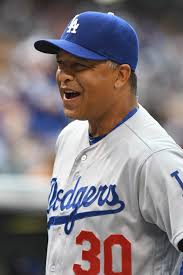if one team is good enough to warrant beating another in 55% of its games, the weaker team will nevertheless win a 7-game series about 4 times out of 10. And if the superior team could beat its opponent, on average, 2 out of 3 times they meet, the inferior team will still win a 7-game series about once every 5 match-ups. There is really no way for a sports league to change this. In the lopsided 2/3-probability case, for example, you’d have to play a series consisting of at minimum the best of 23 games to determine the winner with what is called statistical significance, meaning the weaker team would be crowned champion 5 percent or less of the time. And in the case of one team’s having only a 55-45 edge, the shortest significant “world series” would be the best of 269 games, a tedious endeavor indeed! So sports playoff series can be fun and exciting, but being crowned “world champion” is not a reliable indication that a team is actually the best one. (p. 70-71)Mlodinow's a very smart guy, and I have no reason to doubt that his math is correct. That said, I think we're safe in assuming that this year's World Series winner, the Boston Red Sox, were the best team ("The 2018 Red Sox Are Baseball’s Best Champions Since The 1998 Yankees"). They won a franchise-best 108 games during the regular season, and took 11 out of the 14 games they played during the playoffs. Nevertheless, there was no guarantee that they'd win the World Series, and after Yasiel Puig put the Dodgers ahead 4-0 in the 6th inning of the 4th game, I thought there was a real chance the Dodgers just might pull off the upset. But at least this time, randomness didn't step in and ruin the Red Sox's amazing season. Instead, Dodger manager Dave Roberts did ("Dave Roberts Does it Again"). He pulled Rich Hill, the Red Sox came back, and the rest (as they say) is history.
An occasional blog exploring the intersection of religion, politics and society.
Monday, October 29, 2018
The Best Team Doesn't Always Win the World Series (but it did this year)
The American theoretical physicist, Leonard Mlodinow, has noted in his wonderful book, The Drunkard's Walk: How Randomness Rules Our Lives, that a 7-game World Series isn't long enough to absolutely guarantee that the best team will win. He notes that
Saturday, October 27, 2018
Dave Roberts Does it Again
I've been ranting about this for several years ("Let Starters Finish!", "Not to Beat a Dead Horse", "The Closer Temptation is Hard to Resist", "MLB's Ridiculous Obsession with Closers", "Not Everyone Can Throw Like Mariano Rivera"), but why do today's MLB managers feel the need to pull starting pitchers when they're throwing great? When someone has the entire offseason to rest, who cares about pitch counts? Evidently, Dodgers' manager Dave Roberts does. Tonight, with Rich Hill shutting down the Red Sox bats (and the Dodgers leading the Sox 4-0), Roberts pulled Hill after throwing 91 pitches (and striking out the last batter he faced), and the Dodgers bullpen promptly imploded. The Red Sox scored 9 runs and ended up winning 9-6.
This isn't the first time Roberts has done this ("Thank You, Dave Roberts"). Back in August when the Giants were still in the hunt for a playoff spot, Roberts pulled Clayton Kershaw after pitching 8 innings with the Dodgers leading 2-1, and the Dodgers' relievers gave up 4 runs and the Giants won 5-2. And as Dodgers' fans will remind anyone who listens, Roberts pulled Hill after only 4 great innings in the second game of last year's World Series, which ultimately led to a Dodgers' loss.
Of course, a part of me isn't complaining (I am a Giants' fan, after all). Nevertheless, maybe MLB managers will one day figure out that although pitch counts are important and it's great to have a shutdown closer, sometimes you need to need to let your starters finish and not every closer is as good as Mariano Rivera ("Not Everyone Can Throw Like Mariano Rivera").
This isn't the first time Roberts has done this ("Thank You, Dave Roberts"). Back in August when the Giants were still in the hunt for a playoff spot, Roberts pulled Clayton Kershaw after pitching 8 innings with the Dodgers leading 2-1, and the Dodgers' relievers gave up 4 runs and the Giants won 5-2. And as Dodgers' fans will remind anyone who listens, Roberts pulled Hill after only 4 great innings in the second game of last year's World Series, which ultimately led to a Dodgers' loss.
Of course, a part of me isn't complaining (I am a Giants' fan, after all). Nevertheless, maybe MLB managers will one day figure out that although pitch counts are important and it's great to have a shutdown closer, sometimes you need to need to let your starters finish and not every closer is as good as Mariano Rivera ("Not Everyone Can Throw Like Mariano Rivera").

